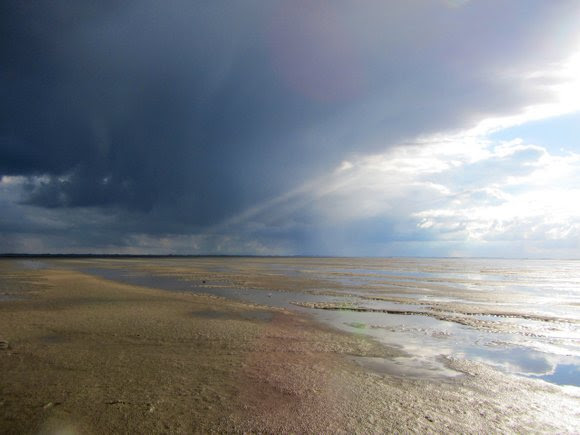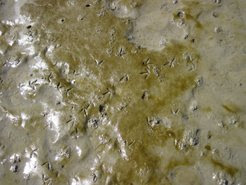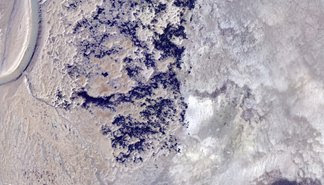Wadplaten zijn de zonnepanelen van de Waddenzee
De minuscule kiezelwieren op de wadplaten blijken de belangrijkste energiebron voor de rest van het voedselweb in de Waddenzee. Dit verrassende resultaat is deze maand gepubliceerd in het wetenschappelijke tijdschrift Ecology door Marjolijn Christianen, postdoc bij Groningen Institute for Evolutionary Life Sciences (GELIFES) van de Rijksuniversiteit Groningen en collega’s van het Koninklijk Nederlands Instituut voor Onderzoek der Zee (NIOZ) en de Universiteit Utrecht.
In het recent afgesloten Waddensleutels-programma werkten onderzoekers en natuurbeheerders van Natuurmonumenten, Staatsbosbeheer, Koninklijk Nederlands Instituut voor Onderzoek der Zee (NIOZ) en de Rijksuniversiteit Groningen samen in een van de grootste ecologische onderzoeksprojecten in Nederland. Doel was de samenstelling en opbouw van het voedselweb in de Nederlandse Waddenzee in kaart te brengen.
Zonnepanelen
Uit de studie van Marjolijn Christianen van de RUG en collega-onderzoekers van andere instituten bleek dat de minuscule kiezelwieren die op de wadplaten leven (ook wel benthische diatomen of microphytobenthos genoemd), de belangrijkste energiebron van het leven in de Waddenzee zijn. Als basis van het voedselweb worden zij gegeten door de meerderheid van de dieren hoger in de voedselketen, zoals wormen, weekdieren, schaaldieren, vis en vogels. De kiezelwieren leggen de energie van de zon vast, zodat de wadplaten waarop zij wonen gezien kunnen worden als de zonnepanelen van de Waddenzee.
Zelfvoorzienend
Beheer kustecosystemen
De bevindingen hebben belangrijke implicaties voor het inzicht in het functioneren van ecosystemen, voor het beheer van kustecosystemen in het algemeen en 's werelds grootste intergetijde ecosysteem, de Waddenzee, in het bijzonder. Zo kunnen deze onderzoeksresultaten het belang aantonen van de bescherming van droogvallende wadplaten (bodemrust) die de kiezelwieren een plaats bieden, zodat deze ‘zonnepanelen’ energie kunnen blijven leveren.
Meer informatie
- Dit onderzoek was een gezamenlijke inspanning binnen het Waddensleutels-programma van Staatsbosbeheer, Natuurmonumenten, de Universiteit Utrecht, het Koninklijk Nederlands Instituut voor Onderzoek der Zee (NIOZ) en de Rijksuniversiteit Groningen. Het Waddensleutelsonderzoek werd gefinancierd door het Wadden Fonds.


Meer nieuws
-
17 februari 2026
De lange zoektocht naar nieuwe fysica
-
10 februari 2026
Waarom slechts een klein aantal planeten geschikt is voor leven
